NEWS ALERT - We won a SILVER IPM award for Best use of Social Media, 2025! Read more🏆
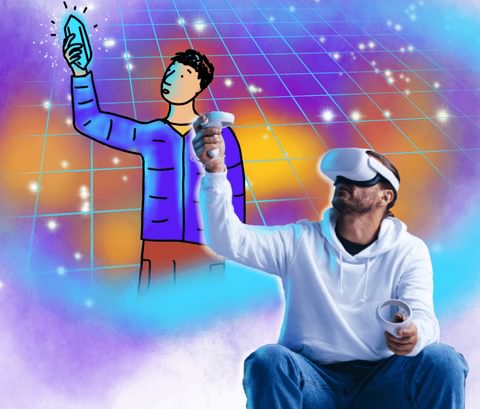
As people bypass traditional media, the Metaverse offers new ways for brands to engage and excite audiences. For industry creatives, it’s an opportunity to break with convention. But can everyday food and drink brands turn the Metaverse into a meaningful business enterprise?
The Metaverse has been hailed as the next generation internet. Facebook has staked its future on it, expecting it to be an immersive, 3D experience. ‘Its defining quality will be a feeling of presence, like you are right there with another person, or in another place.’ At this moment, it’s a testing ground for many household brands – each seeking to understand how they might want to show up in people’s lives as more of us start spending our time there. Whether you’ve grasped what the Metaverse is or not, in a few years’ time vast swathes of the population will be living alternate lives in this digital universe. They will gain access with VR headsets or AR glasses – or maybe a next generation smart phone. They will be able to ‘jump’ between different Metaverse platforms (such as Fortnite and Sandbox) via ‘fixed identity avatars’ that are recognised by others. They will be able to interact and socialise with ‘physicality’.
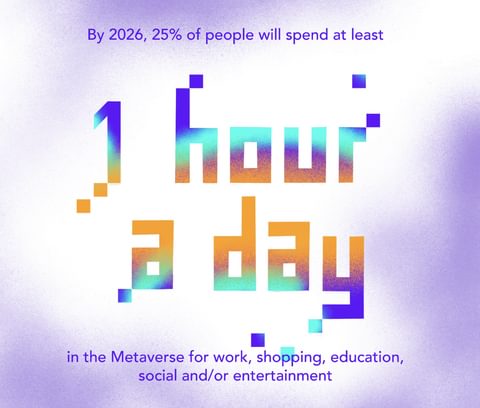
"By 2026, 25% of people will spend at least one hour a day in the Metaverse for work, shopping, education, social and/or entertainment." Source: Gartner Inc.
With traditional ad campaigns losing impact, progressive brands of all sizes have been experimenting in virtual reality spaces. In March this year, the first ever Metaverse Fashion Week hosted more than 70 apparel brands on the Decentraland platform, attracting audiences well over 100,000.
Making the point that the Metaverse isn’t just for fashionistas, Unilever has been demonstrating how everyday brands such as Hellmann’s Mayonnaise can also play. In 2020, the brand launched its very own island in Nintendo’s Animal Crossing game. It inspired gamers to reduce food waste and trigger donations to a charity fighting food waste. It’s a great example of how a brand can land a positive message in an original way.
At a time when experiences matter more, the Metaverse enables everyday brands ways to excite and engage a new generation of consumers, as well as gamers and anyone else prepared to take the plunge.
Beverage brands have been pairing physical and digital realities to appeal to younger tech-savvy generations. Coca-Cola Creations recently activated Zero Sugar Byte, a limited-edition metaverse-inspired flavour claiming to deliver ‘an innovative taste inspired by the playfulness of pixels’. As part of the release, Coca-Cola also created an interactive ‘island’ in Fortnite Creative - an online game where players can discover the product and interact through sensory-inspired mini games.
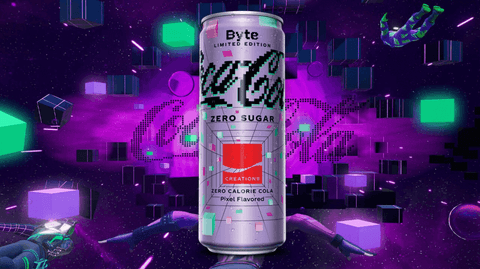
With younger audiences happy to invest in digital assets (many will have paid to upgrade their avatars in games like Fortnite with new outfits or accessories), many brands are beginning to monetise the metaverse by issuing Non-Fungible Tokens. These NFTs are essentially ‘receipts of ownership’ for a digital asset – such as a digital pack design - with the consumer’s proof of purchase stored on a blockchain.
Budweiser secured a first mover advantage by designing 1,936 unique digital cans in the Metaverse to celebrate its birth year (1936). Customers were offered the chance to own these rare designs by purchasing NFTs. Meanwhile, brands like 7 Bridges Brewing in Vietnam sell physical bottles that pair with a digital twin. Holders of NFTs can book a physical tour of the company’s brewery in Danang as well as claim one of 99 unique digital designs.
With the Metaverse host to the world’s most experimental consumers, there is raised appetite for products that break down barriers, including new culinary or tech innovations, and promote issues like sustainability, wellbeing, diversity or inclusion. They will be the driving force behind the mainstream integration of pending innovation including cell-cultured meat, precision fermentation and next-gen mood foods. In the present, L.A based Honeybee Burger has joined food-centric Metaverse platform One Rare to ‘make the Metaverse more meat free.’ The company is creating a virtual location that can be accessed by Metaverse avatars, and wants to develop an NFT menu which will allow users to ‘buy’ vegan products.
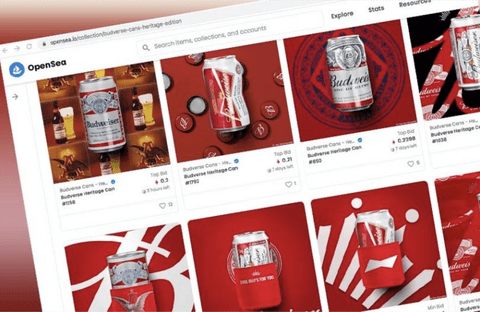
To celebrate the launch of the Gucci Flora Gorgeous Jasmine Eau De Parfum, Gucci Beauty invited people to virtually meet U.S singer Miley Cyrus within the Roblox Metaverse portal. Cyrus’ avatar led interactive games and learning experiences for visitors, including digital selfie opportunities. Users could also visit a Gucci virtual store to purchase digital fragrance bottles as wearable backpacks.
For the guys, U.S men’s skincare brand Geologie went after male gamers in the Metaverse. It created the Geologie Galaxie which allowed users to explore a virtual world where skincare was made more relatable. Users could click on characters to learn more about skincare and the brand’s products. The company also offered NFTs with physical products, as well as livestreaming events on Twitch and a skincare group chat on Discord.
The crossover between gaming and beauty will continue to grow, and it’s a space that offers amazing scope for collaborations that appeal to both markets. According to online gaming platform Roblox, 20% of their users update their gaming avatar daily and are looking for features to create avatars that accurately represent themselves.
South Korean app Zepeto allows users to create avatars of themselves and has partnered with NARS and Dior Beauty to promote the brands’ beauty products. NARS launched eight make-up looks highlighting its Air Matte lip collection, and Dior offered nine exclusive make-up looks for consumers who want the products both for themselves and their avatar.
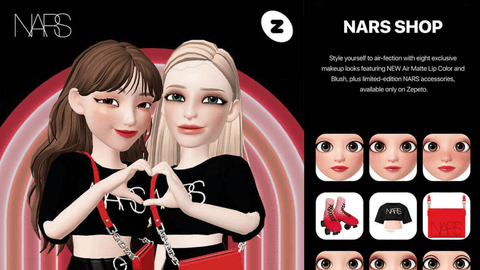
Meanwhile, L’Oréal teamed up with Paris fashion house Viktor & Rolf and audio research company Ircam Amplify to bring fragrance to digital environments. The collaboration has given rise to a digital perfume sample that translates a physical scent’s key notes of chilli pepper, cinnamon, black pepper and red berries into sounds that imitate smelling the fragrance in-person.
At a time when more consumers are looking for experiences, the Metaverse offers brands opportunities to activate additional layers of content and value – with limited edition pack designs, games and virtual stores that showcase brand worlds and products alike. And it will allow a more impulsive dynamic for manufacturers and retailers when compared to most present day eCommerce platforms. The reality is that as more shopping missions move online impulse sales will fall. That’s because online shoppers are less likely to stumble upon a product, they are unfamiliar with. But in the Metaverse brands can nudge incremental purchasing in targeted yet unexpected ways.
The metaverse is expected to become an $800bn revenue opportunity by 2024, but increasing time spent online is taking a toll on our bodies, with many internet users experiencing cybersickness, a term to define the downside of too much screen time. The rise of the Metaverse will see this term gain further traction, so it is important that brands play responsibly.
___
At Together Agency, we’re always advancing our skill sets to stay on top of current trends. That’s why our team of digital experts are ready to help you create powerful digital assets that augment your brand presence, to generate better, more exciting experiences for your consumers. Speak to our team to find out more.